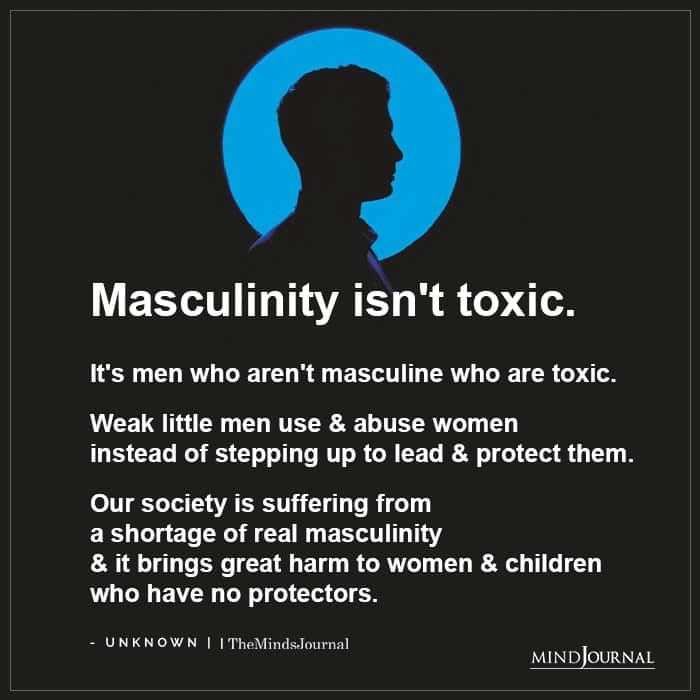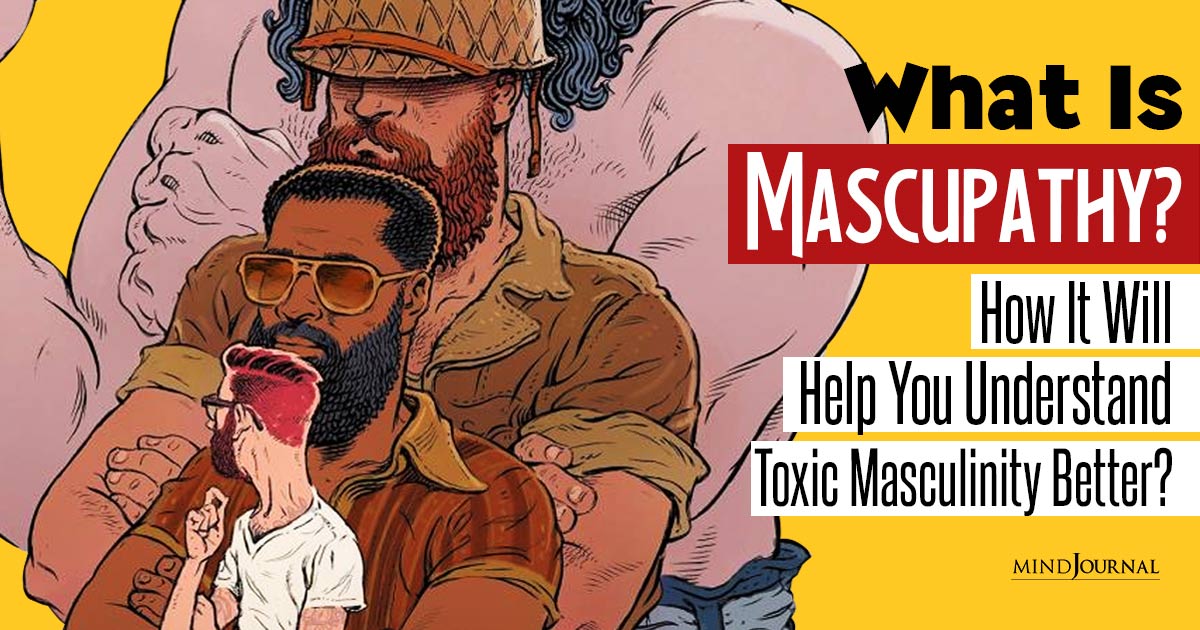Mascupathy, the term coined by psychotherapist Randy Flood, has ignited a vital conversation in an era marked by the rapid evolution of gender norms.
Just as Betty Friedan unveiled the struggles of women in “The Feminine Mystique,” Flood recognized that men, too, are grappling with silent suffering rooted in an archaic concept of masculinity.
In a world where discussions around manhood have gained newfound urgency, Mascupathy emerges as a powerful beacon, aiming to dissect and heal the wounds inflicted by these outdated ideals.
Read more here: 10 Rules For Modern Masculinity
What Is Mascupathy
It is not a term meant to demonize or belittle masculinity. Rather, it’s a lens through which to view the struggles many men face due to societal pressures to conform to a narrow definition of manhood.
Just as unhealthy masculinity refers to the negative behaviors and attitudes that can stem from rigid gender norms, it identifies the underlying issues that can lead to those behaviors.
It’s about recognizing that the pursuit of an unattainable ideal of masculinity can be harmful and stifling.

The Telltale Signs Of Toxic Masculinity
Toxic masculinity is a term that has gained widespread recognition for highlighting the harmful effects of traditional gender norms on men.
It’s about the pressure men often feel to suppress emotions, adhere to aggressive behaviors, and maintain an unshakable facade of toughness.
These signs of toxic masculinity can lead to emotional suppression, relationship difficulties, and even violence.
While unhealthy masculinity is about recognizing the symptoms, mascupathy goes a step further by addressing the root causes.
Read more here: The Only Quality That Matters In A Man
Breaking Down The Domains Of Mascupathy
Flood’s concept of mascupathy delves into four domains that contribute to the issue:
1. Weak Self-Concept
Traditional masculinity imposes an unrealistic ideal that’s tough to uphold. Men are pressured to exhibit extreme strength, emotional suppression, and steadfast control.
This relentless pursuit of an impossible benchmark often breeds feelings of inadequacy and self-questioning, as they grapple with the burden of meeting unattainable expectations.
2. Inadequate Emotionality
From an early age, boys are instructed to detach from their emotions, labeling vulnerability as a flaw.
Consequently, numerous men bury feelings of sadness and fear, allowing these emotions to morph into anger – the sole “permissible” sentiment within the confines of traditional masculinity.
This emotional suppression can hinder healthy expression and cultivate a cycle where anger masks a deeper wellspring of complex emotions.
3. Relational Deficiencies
Despite the persistence of the rugged individualist stereotype, human nature thrives on social bonds.
Men, conditioned to shun emotional connections and assistance, can find themselves ensnared by isolation and solitude.
The suppression of their need for emotional connection not only hinders personal growth but also fosters an environment where loneliness becomes a silent adversary, eroding well-being and hampering genuine human interactions.
4. Externalization
The constructs of traditional masculinity often propel men to externalize their emotions via aggressive acts or even violence.
Rather than engaging in open dialogue about their feelings, they channel them into actions, giving rise to detrimental consequences such as criminal tendencies or instances of domestic violence.
This failure to address internal struggles perpetuates a cycle of harmful behavior that harms both themselves and those around them.
Read more here: 4 Things That Keep Men From Committing To You
How Not To Be A Toxic Male: The Path To Emotional Evolution
This term isn’t about blaming men or discrediting masculinity as a whole; it’s about recognizing that men deserve better. It’s time to evolve masculinity and make it work for men, women, and society as a whole.
So, how not to be a toxic male and embrace a healthier version of themselves?
Embrace Emotional Intelligence
Emotional intelligence and self-management exemplify strength, contradicting notions of weakness. Men must be nurtured to embrace their emotional spectrum, fostering growth and well-being.
Encouraging healthy outlets for emotional expression dismantles harmful stereotypes, creating a society where authenticity and mental health are prioritized, marking true resilience.
Foster Meaningful Connections
Shattering the “lone wolf” paradigm paves the way for enriched relationships and emotional flourishing.
Empowering men to seek solace from friends, family, and therapists nurtures emotional well-being.
This shift transcends outdated notions, embracing vulnerability as strength and underscoring that seeking assistance is a commendable stride toward personal growth and connection.
Reject The Externalization Of Emotions
Healthy masculinity centers on owning emotions and navigating them constructively, bypassing the tendency to offload them onto others via aggression or violence.
This evolution dismantles harmful patterns, fostering emotional growth and fostering relationships grounded in empathy and communication, rather than hurtful outbursts.
Redefine Success
Encouraging men to redefine success liberates them from conventional metrics such as careers or physical prowess.
Beyond these confines, success encompasses emotional well-being, thriving relationships, and individual development.
Acknowledging this multifaceted spectrum allows men to attain genuine fulfillment, steering away from limiting definitions of achievement.
Seek Personal Growth
Similar to athletes honing their bodies, men can nurture their emotional evolution. Engaging in group therapy and introspection facilitates shedding detrimental habits and perspectives.
This intentional investment in personal growth enables men to dismantle harmful behaviors, paving the way for a more balanced and fulfilling approach to masculinity.

Upgrade, Don’t Eradicate
It isn’t about erasing masculinity but enhancing it. Just as we upgrade our devices to keep up with the times, it’s time to upgrade masculinity for a world that demands emotional intelligence, empathy, and collaboration.
Men who shed the shackles of toxic masculinity in favor of a more balanced form of manhood will not only benefit themselves but contribute to a more harmonious and equitable society.
In the same way that Betty Friedan’s work ignited a movement for women’s liberation, the concept of mascupathy can propel men towards an era of self-discovery, growth, and healthier relationships.
It’s a call to action for men to redefine masculinity, reject toxic behaviors, and embrace a form of manhood that uplifts them and everyone around them.
After all, the evolution of masculinity isn’t a threat to men – it’s an opportunity for them to thrive.










Leave a Reply